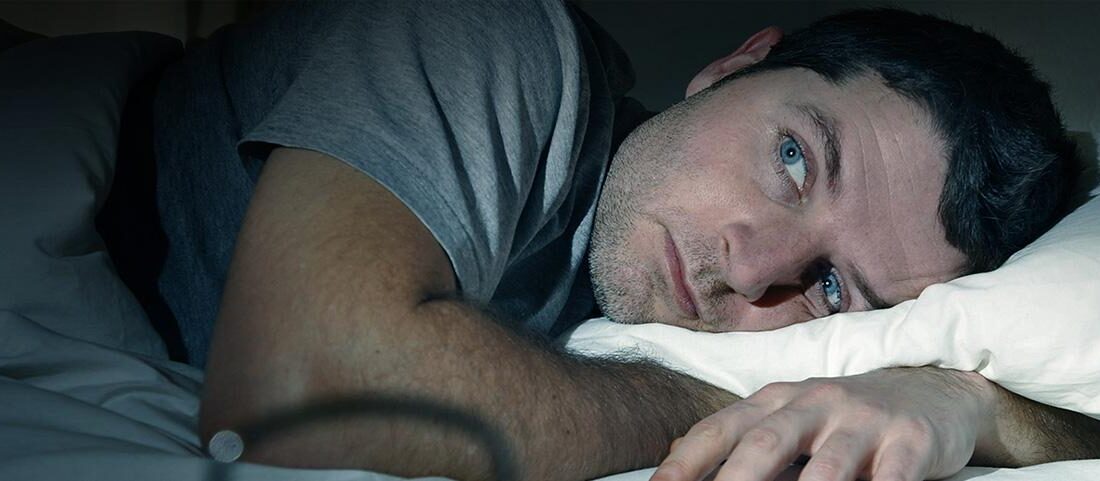Sleep disorders are classified into two groups: dyssomnias1, which involve disturbances in the quality or quantity of sleep, and parasomnias2, which are abnormal physiological or behavioral phenomena occurring during sleep, such as sleepwalking.
Sleep: Occasional insomnia
Sleep is a vital need that takes up a third of our lives. Reducing the amount of time devoted to sleep increases risks related to alertness, learning, and weight gain… This is why sleep disorders must be addressed.

Symptoms of insomnia3
Insomnia is characterized by :
- Difficulty falling asleep
- Waking up during the night
- Early morning awakenings
- A feeling of not having slept at all
The different types of insomnia³:
Insomnia can have various causes and does not necessarily require medication.
According to the ICSD-2 classification of adult insomnia, there are different types of insomnia:
- Transient insomnia: the most common type, these are occasional or short-term episodes lasting from a few nights to a few weeks. They are usually triggered by environmental factors or stress.
- Insomnia due to poor sleep hygiene: linked to inadequate sleep habits such as irregular bedtimes or wake-up times, or inappropriate consumption or activities before sleep.
- Chronic insomnia, divided into two categories:
- Primary insomnia: not associated with any comorbidity. It may have a psychophysiological or idiopathic origin, or result from a misperception of sleep.
- Secondary insomnia: related to a mental or physical health condition.
It is important to report any sleep issues to your pharmacist or doctor to receive a proper diagnosis and appropriate care.
What characterizes occasional or adjustment insomnia?3
It is a “transient” form of insomnia, which can last from a few days to a few weeks (less than 3 months). It is linked to stressful events or new situations that are perceived as stress-inducing. Sleep patterns usually return to normal once the stressor is removed or the individual adapts to the situation.
According to a study conducted in 2012, insomnia affected 1 in 5 adults in France. Its causes are varied: work, stress, anxiety, family situations, and illness. The harmful effects of chronic insomnia on individuals’ health make it a genuine public health issue. In all cases, it is strongly recommended to discuss it with a doctor.
Statistics on sleep disorders³,⁴
Around 30% of the French population report sleep disorders:
- 12–17% suffer from moderate insomnia
- 19–23% suffer from severe insomnia
Daytime sleepiness affects nearly 8% of French people
Sleep disorders are more common after the age of 75
28% of French people sleep less than 6 hours per night, with sleep deprivation affecting people aged 35 to 55 the most
1. La Revue du Praticien. M.M. Ohayon. Prevalence and comorbidity of sleep disorders in the general population. Vol.57, September 30, 2007. Available at: http://www.sfrms-sommeil.org/wp-content/uploads/2012/10/prevalence-comorbidite.pdf (accessed February 17, 2023)
2. INSERM. Sleep and its disorders, November 2011. Available at: https://www.inserm.fr/information-en-sante/dossiers-information/sommeil (accessed February 17, 2023)
3. SFTG – HAS. Management of adult patients complaining of insomnia in general practice, December 2006. Available at: http://www.has-sante.fr/portail/upload/docs/application/pdf/rpc_sftg_insomnie_-_recommandations.pdf (accessed February 17, 2023)
4. INVS. Sleep disorders: Summary of studies conducted by the Institute for Public Health Surveillance, March 2012. Available at: https://www.santepubliquefrance.fr/docs/les-troubles-du-sommeil.-synthese-des-etudes-menees-a-l-institut-de-veille-sanitaire (accessed February 17, 2023)
5. National Institute of Sleep and Vigilance. All about sleep. Available at: https://institut-sommeil-vigilance.org/insomnie/ (accessed February 17, 2023)
6. Ministry of Health and Solidarity. Report on the topic of sleep, December 2006. Available at: https://solidarites-sante.gouv.fr/IMG/pdf/rapport-5.pdf (accessed February 17, 2023)
All advice